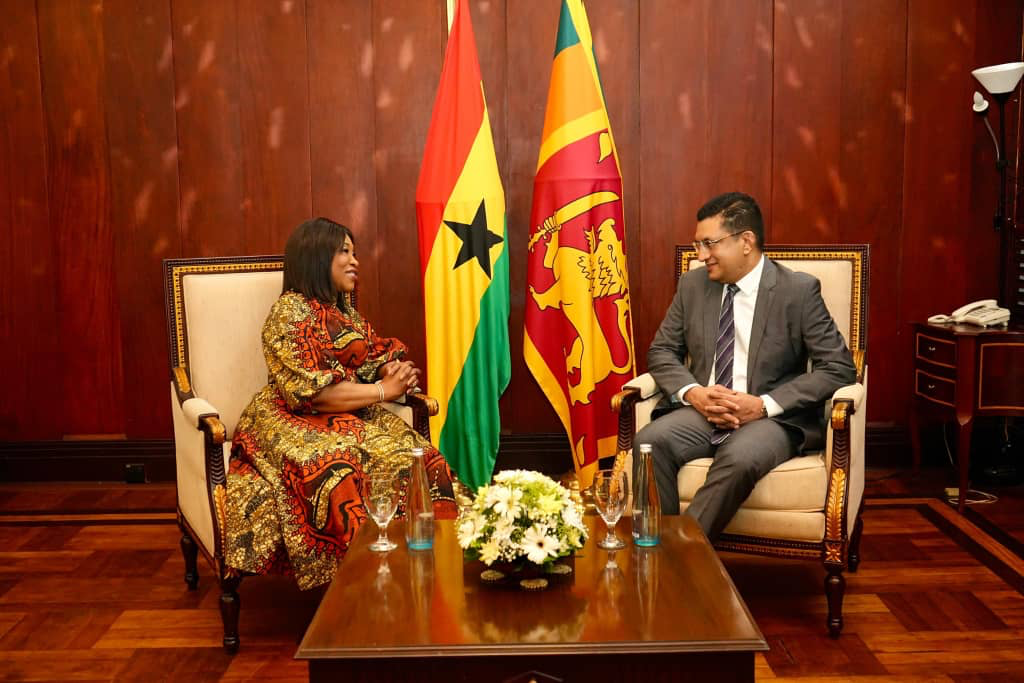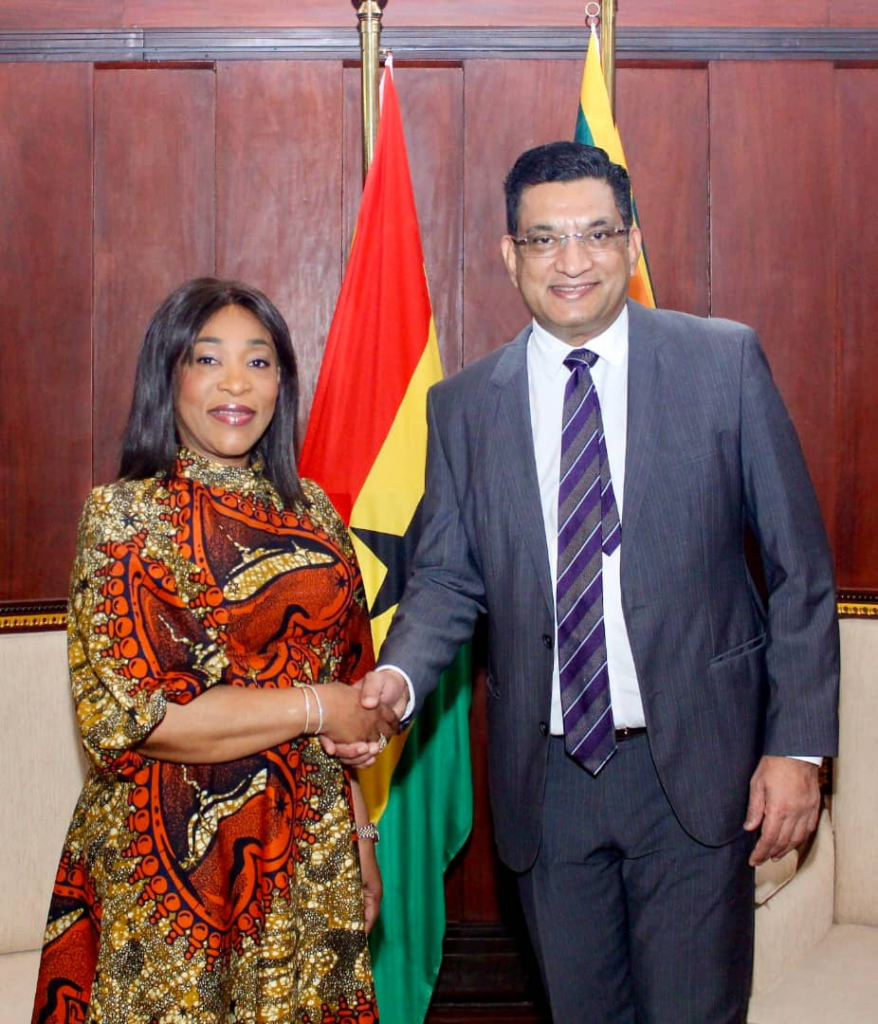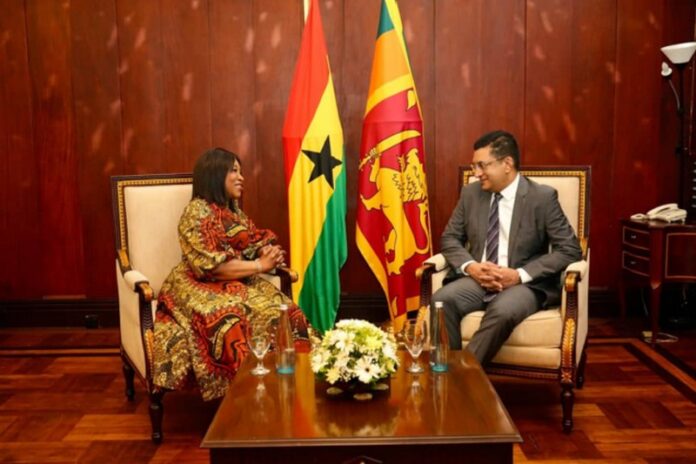Ghana’s Foreign Minister, Shirley A. Botchwey, met with her Sri Lankan counterpart, Ali Sabri, in Colombo to discuss her candidacy for Commonwealth Secretary-General and explore opportunities for economic cooperation between the two nations.
During the closed-door meeting, Ms Botchwey emphasised the importance of learning from each other’s recent economic challenges, noting that both countries had faced significant financial crises.
“As Commonwealth countries who have gone through similar difficult economic experiences recently, there’s a lot we can learn from each other,” Botchwey stated.

Sri Lanka experienced severe economic turmoil in 2022, leading to massive street protests and the eventual collapse of President Gotabaya Rajapaksa’s government.
The country saw its currency, the Sri Lankan rupee, devalue by over 90% against the U.S. dollar, and inflation soared past 70%.
Ali Sabri, who is now the foreign minister, briefly served as finance minister during this period, helping to stabilize the nation’s economy.
Similarly, Ghana sought an IMF bailout in response to its economic challenges in 2022-23, though the situation was less severe than Sri Lanka’s.
Ms Botchwey highlighted the importance of Commonwealth members sharing their expertise and experiences, especially in overcoming economic difficulties.
Both countries are now on a path to recovery.

Sri Lanka’s inflation has decreased to around 40%, and the country expects tourist arrivals to reach two million by the end of the year, a significant increase from 2022. In Ghana, inflation has dropped to 20.9% as of July.
Botchwey expressed admiration for Sri Lanka’s progress in renewable energy, which now accounts for 50% of the country’s power needs, to reach 70% by 2030. In comparison, Ghana’s renewable energy production, primarily from hydro, stands at 31.6%.
Addressing climate change is a key part of Botchwey’s vision for the Commonwealth, should she succeed in becoming the Secretary-General.
Other priorities include promoting democracy and good governance, enhancing education and skills training, supporting youth startups, and boosting trade and investment among the 56-member Commonwealth.
Ms Botchwey also expressed Ghana’s interest in collaborating with Sri Lanka in the textile, garment, rice production, and tourism sectors.

In response, Sabri welcomed the opportunity to expand trade between the two nations, noting that Sri Lanka’s textile industry in Africa is currently limited to Egypt and Kenya.
Trade between the two countries remains modest, with Sri Lanka exporting just under $20 million worth of goods to Ghana in 2021, while imports from Ghana to Sri Lanka amounted to approximately $500,000.
Despite having a larger population (33 million) than Sri Lanka (22 million), Ghana and Sri Lanka have similar annual GDPs of around $75 billion.
Source: Myjoyonline
ALSO READ:


